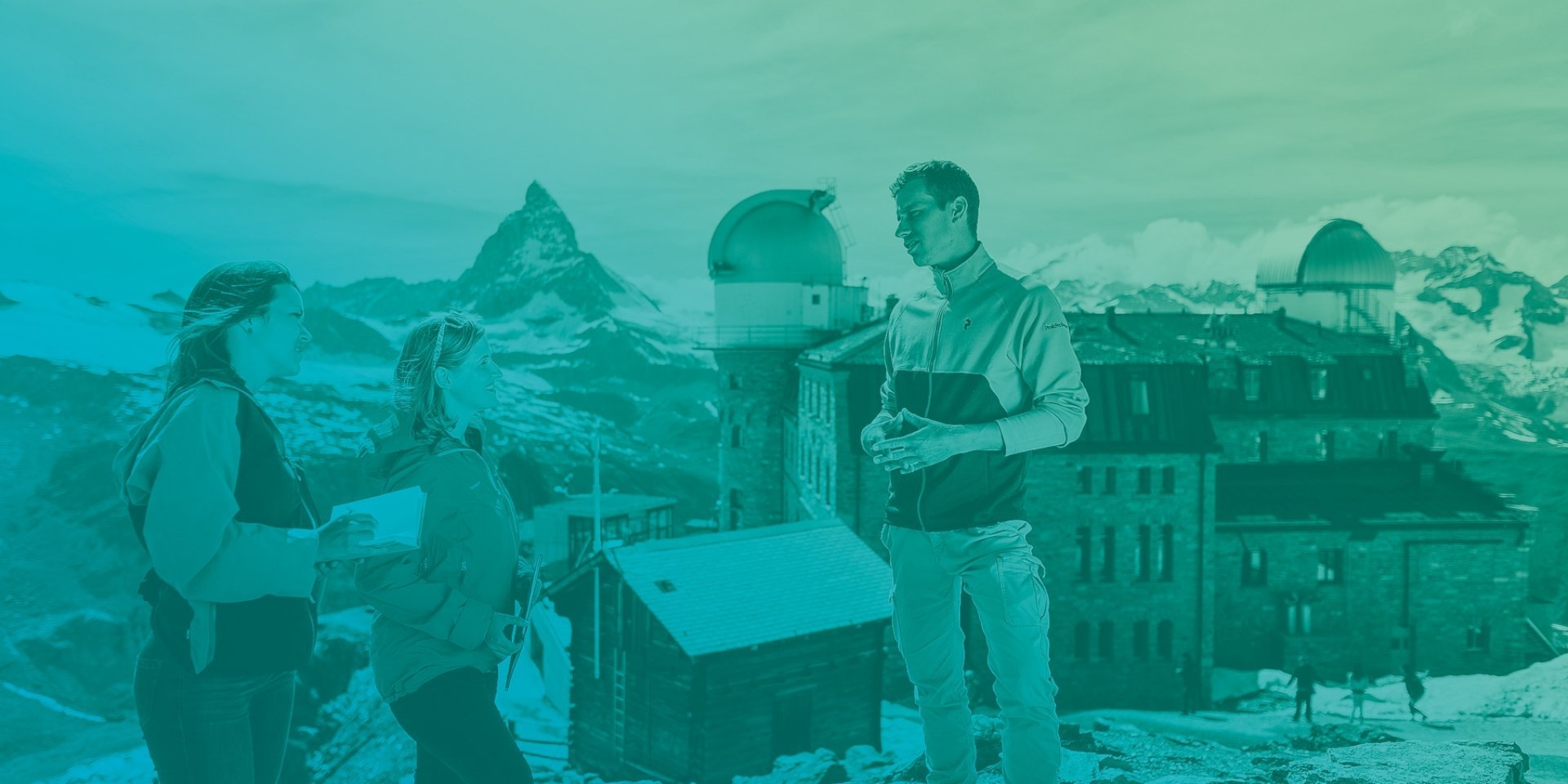The future of the Tourism degree programme. An interview with Alain Imboden, the new head of the degree programme.

At the start of the 2022/23 academic year, Alain Imboden officially took up his new position as head of the Tourism degree programme of the HES-SO Valais-Wallis after three years as a lecturer. Tourism crisis, pandemic, sustainability, new framework curriculum, decline in student numbers – we wanted to know more about his vision and his objectives. We met the new head of the degree programme in his office on the Bellevue campus.
This degree programme was the first at the School of Management to develop and to introduce a new framework curriculum two and a half years ago. It is focused on multidisciplinarity and skills acquisition rather than the imparting of knowledge related to specific subjects. It will continuously evolve based on feedback from students, lecturers and the tourism industry.
In the medium term, it is an important goal for us to attract students from all over Switzerland and especially from German-speaking Switzerland. The number of German-speaking students is declining and we will actively approach this market.
The competition for tourism degree programmes and for tertiary education in general is getting tougher and tougher. We will increase the attractiveness of our degree programme by offering it as a four-year part-time course from autumn 2023, to allow students to work while studying. In the longer term, we plan to introduce an online bachelor's degree. It will be designed as a fully-fledged online degree programme and not a digital adaptation of the existing content. Our goal is to offer this option in the next two to three years.
We also focus on the quality of the study experience. Customer experience is a concept we teach our students throughout their course. We also apply this principle to our degree programme and strive to provide a quality experience for our future and current students and for our former students through our active alumni network.
It is true that this sector was directly affected, and it is normal to wonder if it still offers solid job prospects.
But if we take a step back, we can see that the tourism sector has survived crisis after crisis and that it is a very resilient sector. People have a desire, even a need, to travel. Not necessarily very far, but people have always had the urge to explore the world and they will continue to do so.
The figures show that tourism is picking up again since the end of the pandemic. Domestic tourism, which increased during the COVID crisis, remains strong, while foreign travel, which is now possible again, shows encouraging growth. Most experts predict a return to pre-pandemic levels by 2024-2025 in most countries.
There is currently a great demand in the tourism industry for people with different – even high – qualifications. Job prospects are good and will improve, both in Valais and abroad. I would also like to point out that even during the pandemic, the employment rate of our graduates was almost 100%.
During the pandemic, the world realised that reducing travel reduces the negative impact of human activities on the planet. This is a very good thing as it promotes a much-needed more sustainable approach to the economy.
Tourism is often seen as the black sheep in terms of environmental protection. It has become an easy target and suffers from management and development trends that, in the past, have not always put sustainability first. The time has come for tourism to make sustainability, whether economic, social or environmental, the driving force of its development.
Sustainability is a key element of our new framework curriculum. We are not just offering a course or a module on sustainability, but integrate it as an underlying principle of the entire programme. Thanks to this approach, our students learn to think and decide sustainably and develop the skills to shape the sustainable tourism of tomorrow.
Like the graduates of hotel management schools, our graduates do not automatically work in the hospitality or tourism industry later on. They are hired mainly for their social competence and soft skills.
Nowadays, the ability to build customer relationships, to create customer experiences and to understand customers and their needs is very much in demand. And this is exactly what we teach in our Tourism degree programme.
We train versatile professionals who can adapt to the needs of other economic sectors. This diversity of our training profile is one of our great strengths.
I would like to tell them that they have made the right choice for their future. We have received consistently positive feedback for the new curriculum. It is innovative and very well adapted to tomorrow's tourism. The skills acquisition, the continuous improvement of the study programme, the different modules offered, the last year with electives for a more personalised experience – all this makes our degree programme stand out.
Training is very much oriented towards practical projects with real-life scenarios that are carried out with external partners. The internship during the last two semesters was replaced by a final year with a strong practical focus and supervised modules. Unlike internships, this allows us to achieve clear objectives. I am convinced that the quality of our degree programme is excellent and am proud to be part of it.
After his studies in Switzerland and Sweden, Alain Imboden worked at the Ecole des Roches in Crans-Montana for 14 years before joining the HES-SO Valais-Wallis in 2019. A mountain sports enthusiast, a native of Sion and a Suecophile, he now has the important task of developing the tourism degree programme, which has been marked by the pandemic and an awareness of the sector's impact on the planet. Passionate about his job, he wants first and foremost to offer students a quality experience, mainly through the continuous improvement of the new framework curriculum. Imboden is realistic, but confident for the future of the tourism sector and the career prospects of his students.

